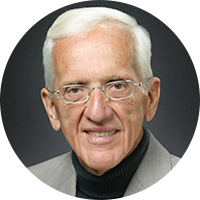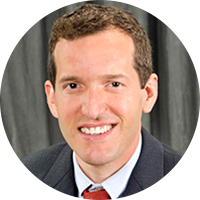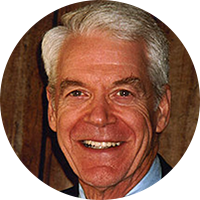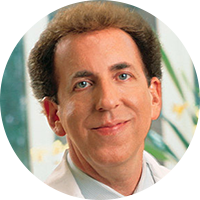
Deepen your plant-based knowledge
Earn your Plant-Based Nutrition Certificate
Try a Sample Course
What is the Plant-Based Nutrition Certificate?
The Plant-Based Nutrition Certificate is an online, video-based course focused on the science behind a plant-based diet. It arms students with the knowledge to improve overall health, learn new skills, or even inspire a career change! Over the program, you'll learn from over 25+ leading experts on a wide range of topics.
Investment: $949 (payment plans available)
*The Plant-Based Nutrition Certificate qualifies for some HSA/FSA account payments. Check with your account administrator. Their number is on the back of your card.
The Plant-Based Nutrition Certificate is One-of-a-Kind!
Developed by the co-author of The China Study
Featuring over 25 plant-based experts
50+ hours of content
Learn the skills to make a career change
Take action to improve your health
Coursework Topics Include:

- The science behind a plant-based diet
- Dr. T. Colin Campbell’s 8 Principles of Food and Health
- The role nutrition plays in chronic disease, including cancer, heart disease, diabetes, Alzheimer’s, and autoimmune disorders
- The importance of nutrition at each stage of life, beginning with pregnancy through adulthood
- Strategies to support sustainable positive lifestyle change and inspire others
- The psychological reasons we are drawn to unhealthy foods
- How government and industry can affect dietary choices and the environment
- Common topics of concern to athletes and fitness enthusiasts, such as protein consumption
And much more!
Program Overview
- 23,000+ students
- 100% online, learn at your own pace
- No prerequisites
- Continuing education credits
Self-Paced
24/7 Access
Who Should Enroll?
This program is designed for individuals seeking to improve their own personal health, as well as chefs, teachers, fitness trainers, entrepreneurs, healthcare professionals and more, who want to enhance their nutrition skills and education.
Chefs
Fitness Trainers
Healthcare Professionals
Teachers
Entrepreneurs
Dietitians
Learn From Plant-Based Experts
How These 9 Professionals Use Their Plant-Based Nutrition Certificate

Over 23,000 students worldwide have been putting the expert knowledge they gained from this certificate program to good use, improving their personal health, advancing their careers, and serving their communities. Here's how some of them are using their Certificate.
What Our Students Are Saying

Nina Gheihman
Ph.D. Harvard University
"Overall the entire experience has been a wonderful blessing in my life and the lives of others."

Dustin Davis
Middle School Teacher
"Since I started the course I lost a significant amount of weight. I can’t recommend it to enough people and I would take it over again in a heartbeat."

Teresa Gleason
Fitness Instructor
"I feel like I have more confidence in talking about evidence-based nutrition... It's a fantastic program."
Frequently Asked Questions
While the Plant-Based Nutrition Certificate includes the groundbreaking research of Dr. T. Colin Campbell, this program includes lectures from 25+ leading experts with information not included in the book.
In addition, it provides:
- Opportunities to network and learn from your peers
- Interactive activities and discussions guided by an experienced, expert learning team
- Downloadable fact sheets and other helpful tools
- A certificate from the T. Colin Campbell Center for Nutrition Studies
Our Plant-Based Nutrition Certificate is offered through our Whole Communities online platform.
- It consists of three parts: Nutrition and Society, Nutrition and Chronic Disease and Plant-Based in Practice
- Program is completely on-demand with a self-paced schedule.
- There are no reading materials to be purchased and no prerequisites.
- Engagement with program instructors through online, written discussions
Our Plant-Based Nutrition Certificate is not a license, registration, or certification. Certification requires passing an exam and awards a credential upon successful completion of an exam. Certification also requires recertification to stay current in a specific area.
However, this certificate program does reflect your rigorous study of the evidence supporting a whole food, plant-based lifestyle. In addition, it does offer 30 hours of continuing education credits that can be applied toward the maintenance of several professional licenses and certifications.
Many find value in adding our certificate to their resume. Our certificate is a trusted credential, taught by renowned experts.
Yes! Our program attracts a very diverse range of students. Some enroll because they or their family members are struggling with health problems. Others are medical and health professionals who want to enhance their skills and education. Many are simply interested in learning about what constitutes a healthy diet.
Yes, our program is approved for continuing education credits for a variety of health professions. Detailed information is provided on the Center for Nutrition Studies website here.
As our program is a professional development certificate program, there are no prerequisites or formal admission processes required for enrollment.
Yes, our program is available internationally. Please note, all coursework is taught in English only.
Yes, you have the option to pay with Klarna at checkout.
Ready to enroll? You can purchase here. After purchasing the program you will be redirected to create an account. In addition, you will receive an email with information on how to access your coursework.
Yes, you can purchase access to this Certificate as a gift. You will be asked to enter the gift recipient’s name as part of the check-out process. The confirmation receipt will be emailed to you with instructions on how to share it with the recipient. This way, you are able to determine what date the person receives the Certificate. Please reach out to our Student Support Coordinator, at enrollment@nutritionstudies.org with any questions.
Though much of the course material can be viewed on a handheld device, quizzes and assignments are best viewed and completed on a computer. If you must access quizzes and course material on your handheld device, there are two options to do so, the Mighty Networks app and an internet browser. If you run into challenges using the Mighty Networks app, try logging into your Whole Communities account on your handheld device via your favorite browser such as Chrome or Safari.
Make sure that your handheld devices and your computer are running the most up to date operating system for your device or you may experience issues with your coursework not displaying properly.
To request a refund, please review our Refund Policy. In your request, include your name, date of enrollment, and a reason for your request (though you’re not required to provide one for a withdrawal):
- Email: enrollment@nutritionstudies.org
- Phone: +1 (607) 319-3209
- Or, contact us via form
To speak to an enrollment specialist about the Plant-Based Nutrition Certificate, email us at enrollment@nutritionstudies.org, or call 607-319-3209
Ready to Enroll?
To speak to an enrollment specialist about the Plant-Based Nutrition Certificate email us at enrollment@nutritionstudies.org, or call or text 607-319-3209




























